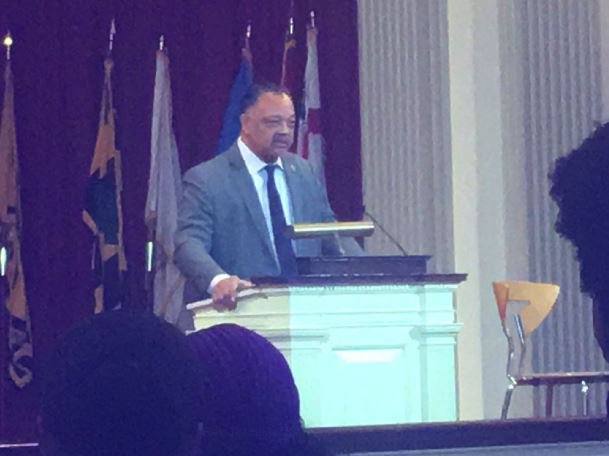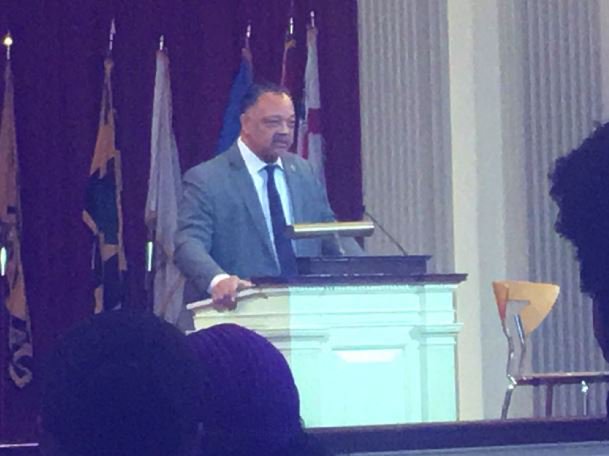[ad_1]
By Brianna Rhodes, Special to the AFRO
Civil rights figure, Rev. Jesse Jackson delivered the closing remarks at the University of Maryland, College Park second annual Social Justice Day event April 24.
The campus-wide, day-long event allowed for students, faculty and staff to collaborate and share ideas on important causes.
Jackson spoke on topics such as voting, diversity, civil rights and activism.

At the beginning of his speech, Jackson took the time to recognize this year as the 50th anniversary of Dr. Martin Luther King’s assassination, the 100th anniversary of Nelson Mandela’s birthday and the recent deaths of activists, Winnie Mandela and Linda Brown.
“There’s a temptation to focus on events [and] personalities which have played huge roles on this journey,” Jackson said. “We owe it to ourselves to put some focus on the journey, not just on the events.”
“The factors of our journey is that our memory has been substantially erased and too often our spirits are broken, because we often do not use all of our best on this journey,” the legendary activist said.
Jackson emphasized the importance of remembering the past in order to devise plans to fight back, by filling up courtrooms, the streets and voting booths. He noted that within the time span of 40 years since the time of King’s passing, the United States was able to elect a Black president.
“We go from the balcony in Memphis where Dr. King was slain to the balcony of the White House where Obama was inaugurated,” Jackson, who was with King the day he was killed, said. “The 40 years of willingness from Memphis to the White House shows that we must never stop fighting, never stop marching, building coalitions, using our main weapons and revolutionary values.”
Jackson said King transformed America in a fundamental way and how students, faculty and staff at Maryland have the opportunity to labor, love, build and grow. But, in order to do so citizens must learn to live together in a multicultural, global world. He spoke of the strong educational background of other leaders such as Mandela and Fidel Castro.
“Those who lead must learn, and those who learn must lead,” Jackson said. “We must keep or values to lift us above our situation and circumstance. Today we stand on solid grown of change and hope. America is a great nation…I am concerned today that all that we’ve gained is under attack.”
Jackson said that the voting rights act, public education and environmental laws are under attack today, yet it is important to sustain through this difficult season to keep hope alive by continuing to march, vote and stand tall.
The reverend recounted some of King’s accomplishments during his 13 years of activism, which included the Montgomery bus boycott, the voting rights act, fair housing and the war on poverty. He said that King died hated, although he was a lover and died violent, though he was nonviolent. He emphasized that death cannot stop the struggle and we must continue to fight for a better future for America.
“Move on to higher ground and when you get there hold your hope,” Jackson said. “There is a struggle today for the soul of America. You can go forward with hope and healing, and backwards by hope and hate. We must win the battle that we fought by hope and healing, not backwards by hope and hate. This land is our land.”
[ad_2]
Source link

